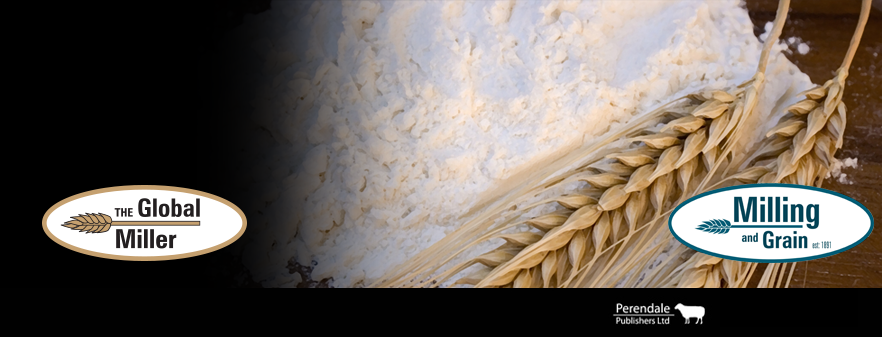by
Andrea Dietrich, Dr Eckel
Southeast Asia already has a high share of global trade, and is becoming increasingly important. However, the humid and warm climatic conditions in this region present a major challenge for powder products.
Quality issues include poor flow ability, lumps and microbiological spoilage. Nevertheless, quality must hold, even in adverse conditions. Dr Eckel Animal Nutrition, German manufacturer and supplier of feed additives, shares the results of a recent evaluation of climate data during shipments of powder products to Southeast Asia.
What stays together, grows together
The ASEAN Economic Community (AEC), consisting of the 10 Southeast Asian states Malaysia, Indonesia, Singapore, Brunei, Thailand, the Philippines, Vietnam, Laos, Myanmar and Cambodia, was established at the beginning of the year. With 4.4 million square kilometres, the economic area is similar in size to the EU. The towers of containers in Singapore speak for themselves: with more than 30 million containers loaded annually, Singapore is a heavyweight in global trade and impressively demonstrates the significance of this region for global trade.
Economic dynamism and confidence are already high, and the Southeast Asian region additionally offers great potential for economic growth. Due to the elimination of customs duties and other trade barriers, the AEC will experience a strong growth spurt, which will further increase this potential.
Climate and other inconveniences
Southeast Asia begins east of India and south of China. The constituent countries are home to 625 million people, more than the population of the European Union.
The climate is predominantly tropical and humid: the determining factor is the monsoon, bringing with it showers and torrential rain. Only Myanmar and northern Thailand experience short dry seasons, unlike the rest of Southeast Asia where the dry seasons are not so well defined and it rains throughout the year – in some areas, daily. Temperatures do not vary much: 20°C at night and 30°C during the day, climbing above 40°C in certain areas.
Travellers to distant countries should first familiarise themselves with the rainy season.
These extreme weather conditions affect humans, animals and the environment, and particularly the stability and durability of many products. Powders are especially affected, because they have a large internal surface area, making them vulnerable to external influences. The internal surface area of a powder can be 100,000 times larger than its external surface area. Consequently, powders are many times more sensitive to environmental fluctuations. Although special packaging provides reliable protection, it is expensive. Air-conditioned transport is neither an ecological nor an economical alternative.
Therefore, it is all the more important to understand one’s own products and their behaviour in all weathers.
Read the full article, HERE.
Visit the Dr Eckel website, HERE.
Southeast Asia already has a high share of global trade, and is becoming increasingly important. However, the humid and warm climatic conditions in this region present a major challenge for powder products.
Quality issues include poor flow ability, lumps and microbiological spoilage. Nevertheless, quality must hold, even in adverse conditions. Dr Eckel Animal Nutrition, German manufacturer and supplier of feed additives, shares the results of a recent evaluation of climate data during shipments of powder products to Southeast Asia.
What stays together, grows together
The ASEAN Economic Community (AEC), consisting of the 10 Southeast Asian states Malaysia, Indonesia, Singapore, Brunei, Thailand, the Philippines, Vietnam, Laos, Myanmar and Cambodia, was established at the beginning of the year. With 4.4 million square kilometres, the economic area is similar in size to the EU. The towers of containers in Singapore speak for themselves: with more than 30 million containers loaded annually, Singapore is a heavyweight in global trade and impressively demonstrates the significance of this region for global trade.
Economic dynamism and confidence are already high, and the Southeast Asian region additionally offers great potential for economic growth. Due to the elimination of customs duties and other trade barriers, the AEC will experience a strong growth spurt, which will further increase this potential.
Climate and other inconveniences
Southeast Asia begins east of India and south of China. The constituent countries are home to 625 million people, more than the population of the European Union.
The climate is predominantly tropical and humid: the determining factor is the monsoon, bringing with it showers and torrential rain. Only Myanmar and northern Thailand experience short dry seasons, unlike the rest of Southeast Asia where the dry seasons are not so well defined and it rains throughout the year – in some areas, daily. Temperatures do not vary much: 20°C at night and 30°C during the day, climbing above 40°C in certain areas.
Travellers to distant countries should first familiarise themselves with the rainy season.
These extreme weather conditions affect humans, animals and the environment, and particularly the stability and durability of many products. Powders are especially affected, because they have a large internal surface area, making them vulnerable to external influences. The internal surface area of a powder can be 100,000 times larger than its external surface area. Consequently, powders are many times more sensitive to environmental fluctuations. Although special packaging provides reliable protection, it is expensive. Air-conditioned transport is neither an ecological nor an economical alternative.
Therefore, it is all the more important to understand one’s own products and their behaviour in all weathers.
Read the full article, HERE.
Visit the Dr Eckel website, HERE.
The Global Miller
This blog is maintained by The Global Miller staff and is supported by the magazine Milling and Grain
which is published by Perendale Publishers Limited.
For additional daily news from milling around the world: global-milling.com



No comments:
Post a Comment